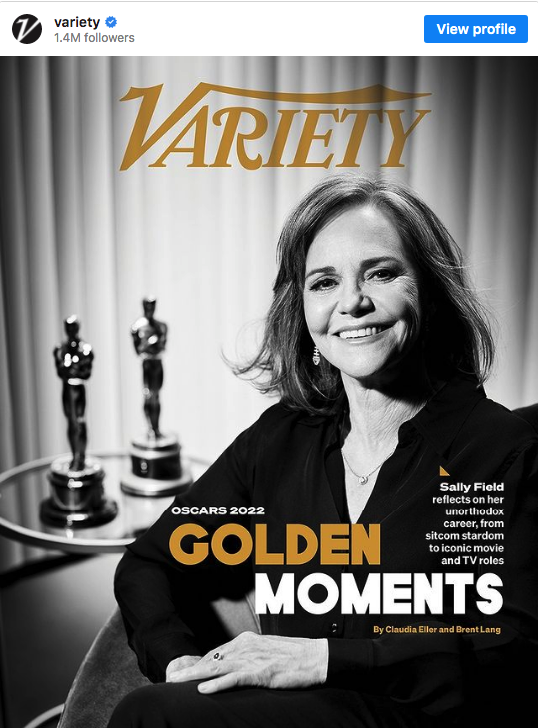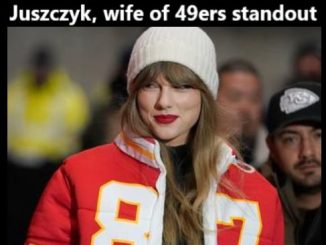Sally Field, an actress who has won Academy, Emmy, and Golden Globe Awards, is well-known for her parts in the films “Forrest Gump,” “Brothers and Sisters,” “Lincoln,” and “Steel Magnolias.”
The 76-year-old actress launched her career in 1965 with the lead part in “Gidget.” She has since made several TV appearances, motion pictures, and Broadway performances.
Field has also been open about her struggles in her personal life. She discusses her stepfather’s sexual abuse of her as well as her battles with depression, self-doubt, and loneliness in her 2018 memoir “In Pieces.”
On November 6, 1946, Sally Field was born in Pasadena, California. Her mother was the actress Margaret Field (née Morlan), and her father was a salesman named Richard Dryden Field. Her mother married actor and stuntman Jock Mahoney following her parent’s divorce. Richard Field, Sally’s brother, and Princess O’Mahoney, her half-sister, are both living.
HER PERSONAL LIFE
Sally Field married Steven Craig in 1968, and they had two sons, Peter and Eli. They divorced in 1975, and she married Alan Greisman in 1984. They had one son together, Samuel, before divorcing in 1994. From 1976 to 1980, she dated Burt Reynolds, a difficult relationship she discusses in her memoir.
She recounts his controlling behavior and how he convinced Field not to attend the Emmy ceremony where she won for “Sybil.” Reynolds actually died just before her book’s release, and in his own memoir, he called their failed relationship “the biggest regret of my life” in his 2015 memoir “But Enough About Me.”
Meanwhile, Fields said they hadn’t spoken for 30 years before his passing. “He was not someone I could be around,” she explained. “He was just not good for me in any way. And he had somehow invented in his rethinking of everything that I was more important to him than he had thought, but I wasn’t. He just wanted to have the thing he didn’t have. I just didn’t want to deal with that.”

These days, Sally Field keeps her Oscars and Emmys in a TV room where she plays video games with her grandkids. So far, Field shows no signs of retiring with her film “Spoiler Alert” releasing next week, as well as “80 for Brady” coming in 2023.
“As an actor, she dared this town to typecast her, and then simply broke through every dogmatic barrier to find her own way — not to stardom, which I imagine she’d decry, but to great roles in great films and television,” said Steven Spielberg, her friend and “Lincoln” director. “Through her consistently good taste and feisty persistence, she has survived our ever-changing culture, stood the test of time and earned this singular place in history.”
Creating Unforgettable Memories: A Magical Wedding Surprise
Our wedding day will always be remembered as a significant event. There are innumerable incredible moments during the day that make us gasp and are truly moving. Occasionally, amid the flurry of feelings, unexpected events occur that cause our hearts to race.
Contents
Unlocking Dance’s Potential
Wedding dancing has long been a staple, bringing an extra dimension of happiness and celebration to the occasion. However, it has developed into something truly remarkable in recent decades. These days, surprising dancing performances that stun guests and maybe even the bride or groom are used to liven up celebrations.
A memorable incident of this kind happened at a Pennsylvania wedding. Four extraordinarily gifted young ladies enchanted the audience with an Irish dance. Under the direction of the Hooley School of Irish Dance, they skillfully put on a show that had everyone in stitches.

Enthralling Synchronization: An Unmatched Dance
Amidst the lively rhythms of “Shut up and Dance,” two elegant ladies skillfully entwined their feet in an impeccable demonstration of accuracy. These girls performed Irish dancing with grace and elegance. It’s an art form with an alluring appeal.
Before long, two more girls appeared on stage, dressed same. There was a tangible sense of excitement when five more dancers entered the stage and blended in flawlessly with the well-coordinated performance. They had outstanding timing and cooperation.
An Unexpected Reward
The audience was utterly enthralled, stunned by the incredible show that was playing out in front of them. The captivating dancers had everyone’s attention, but they had no idea what was in store for them. They had no idea that the stunning bride would appear with these young, gifted actors for a spectacular climax.

The bride’s seamless integration into the dancing routine resulted in an amazing moment of oneness. The joyful atmosphere of the occasion was evident from the room’s overflowing warmth and celebration.
To experience this incredible moment for yourself, click the video below, and get ready to be astounded by the unparalleled skill and surprise that transpired during Gretchen’s wedding reception:



Leave a Reply